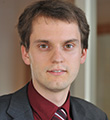Perspectives for the Deployment of Wind Energy: Overview of Global Trends by 2050 and Guidance to National Roadmapping Efforts
22 May 2014
Wind power has the potential to contribute up to 18% of the world’s electricity supply by 2050, saving up to 4.8 gigatonnes of CO2 emissions per year. At the national level, wind power can also attract investment, provide energy security through diversification, spur technological innovation and enhance stable economic growth. While wind energy is developing towards a mainstream, competitive and reliable technology, several barriers could delay progress. These include financing, grid integration issues, social acceptance and aspects of planning processes. Increasing the cost-effective penetration of wind energy into the electricity supply requires considerable cooperation among decision makers and stakeholders of the energy sector, as well as ongoing public support engendered by positive encounters with the wind sector.
The Clean Energy Solutions Center, in partnership with the International Energy Agency (IEA), hosted this webinar on best practices to deploy wind energy. The webinar brought together IEA experts who have led the development of these publications and the Clean Energy Solutions Center. It included three dimensions:
- Overview of global wind deployment by 2050 in line with IEA’s 2-degree scenario: Presentation of the updated IEA Technology Roadmap on Wind Energy (2013)
- How to develop a wind technology roadmap at the national level: Presentation of the IEA’s recently released How2Guide for Wind Energy (2014)
- Overview of the integration of wind energy into flexible power systems: Presentation of the IEA’s recent publication, The Power of Transformation: Wind, Sun and the Economics of Flexible Power Systems (2014)
Panelists
 Ingrid Barnsley, Head of International Partnerships and Initiatives Unit, IEA
Ingrid Barnsley, Head of International Partnerships and Initiatives Unit, IEA
Presentation
Ingrid Barnsley is Head of International Partnerships and Initiatives at the International Energy Agency (IEA). She has previously served as Special Advisor to the IEA’s Executive Director IEA and as Interim Chief Legal Counsel of the IEA, among other roles. As a lawyer, Ingrid specialised in climate change, energy and environmental law at a global law firm, worked as an Editor and Writer for the International Institute for Sustainable Development and served as an Adjunct Assistant Professor at the American University of Paris. Ingrid holds a Masters in International Relations and a Doctorate in International Law from Oxford University, as well as a Bachelors of Law and a Bachelors of Arts from the University of New South Wales.
 Simone Landolina, Coordinator of the International Low-Carbon Energy Technology Platform, IEA
Simone Landolina, Coordinator of the International Low-Carbon Energy Technology Platform, IEA
Presentation
Simone Landolina joined the IEA in 2013 as Coordinator of the International Low-Carbon Energy Technology Platform. Prior to joining the IEA, Simone worked in Brussels as Coordinator of the European Technology Platform on Renewable Heating and Cooling, an initiative funded by the European Commission.
 Cédric Philibert, Senior Expert, IEA
Cédric Philibert, Senior Expert, IEA
Presentation
A former science journalist, Cédric Philibert advised the French environment minister from 1988 to 1990. In 1990, he published two books on climate change and on renewable energies. From 1992 to 1998, he advised the CEO of the French Agency for the Environment and Energy Efficiency. Cédric then joined UNEP and, in 2000, the International Energy Agency. At the IEA, he has been in charge of the “evolution of climate policy”, and co-authored the books Beyond Kyoto (with J. Pershing, 2002) and Act Locally Trade Globally (with R. Baron, 2005). In 2009, he moved into the renewable energy division at the IEA. In 2010, he wrote and published the technology roadmap on concentrating solar power, in 2011 Solar Energy Perspectives, in 2012 and 2013 the Technology Roadmaps on hydropower and wind power. Qualified in political sciences, he studied economics and published numerous papers in peer-reviewed and other journals.
 Simon Muller, Renewable Energy Division, IEA
Simon Muller, Renewable Energy Division, IEA
Presentation
Simon Müller leads the IEA work on the Grid- and System Integration of Renewables. He recently completed a two-year project assessing the technical and economic implications of large-scale wind and solar grid integration. In addition to a cost-benefit analysis of different flexibility options, the project assessed the current market design in a wide range of system contexts. Simon is also a principal author of the IEA publication Deploying Renewables 2011 – Best and Future Policy Practice, which provides a comparative assessment of the impact and cost-effectiveness of renewables support policies. Before joining the IEA, Mr. Mueller worked for a technical cooperation project in the Mediterranean and the German Government. He holds a M.Sc. in Physics from the University of Bremen.
